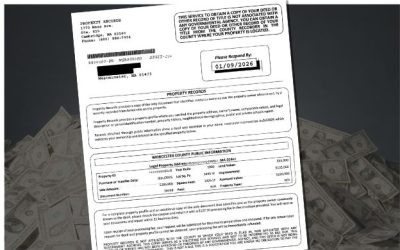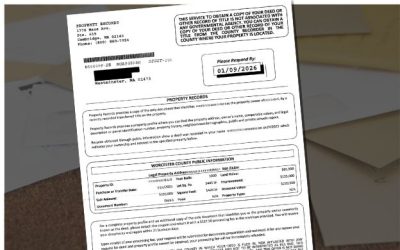
Oct 14, 2025 | Mortgage Rates, Mortgage Tips
The answer depends on several interconnected forces: inflation trends, Fed policy decisions, bond market activity, and overall economic strength. Understanding how these factors work together can help Massachusetts homebuyers and sellers make informed decisions before closing day.
Inflation remains the leading driver behind mortgage rate movements. If inflation continues to cool, borrowing costs are likely to ease further — but any unexpected rise could stall or reverse that progress.
According to Fannie Mae, if inflation spikes again due to energy costs, wage growth, or global tensions, the Fed could delay additional rate cuts, keeping mortgage rates higher for longer.
Inflation directly affects loan affordability. Lenders adjust long-term interest rates to offset inflation risk, which means pre-approval numbers can shift quickly. Buyers should stay in contact with both their lender and closing attorney to prevent last-minute surprises in loan terms or payment estimates.
2. Federal Reserve Policy and Rate Cuts
While the Federal Reserve doesn’t set mortgage rates directly, its benchmark rate influences how much banks charge to lend money. If the Fed begins cutting rates in early 2026, mortgage rates could follow — potentially opening a short-term opportunity for lower borrowing costs.
Economic projections from Bankrate suggest rates may hover around 6% through 2026, depending on the pace of these cuts.
If you’re under contract during a policy shift, it’s essential to review your rate-lock agreement with your attorney. Adjustments to contract timelines or extensions can prevent financing complications if the market shifts unexpectedly before closing.
3. Treasury Yields and Bond Market Volatility
Mortgage rates generally follow the 10-year U.S. Treasury yield, which reflects investor confidence in the economy. When investors move toward safer assets, yields fall — and mortgage rates often decline shortly after.
However, market volatility can push yields up quickly. According to Wells Fargo, mortgage rates are unlikely to fall dramatically in the short term due to continued uncertainty in bond markets.
Even when markets fluctuate, closing deadlines remain fixed. Your attorney ensures financing commitments, loan documents, and escrow transfers stay aligned so market swings don’t derail your closing.
4. Economic Growth and Labor Market Strength
Mortgage rates also reflect the overall health of the U.S. economy. A robust job market and steady GDP growth tend to keep rates elevated because lenders anticipate continued demand for credit.
Conversely, if growth slows, the Fed may act more aggressively to lower rates. Analysts at Norada Real Estate expect gradual rate declines into 2026 as the economy cools.
During times of uncertainty, lenders may tighten underwriting requirements. Having a qualified real estate attorney ensures all documentation — from income verification to title clearance — is prepared and submitted correctly to avoid preventable delays.
Staying Ready in an Uncertain Market
Analysts predict that 30-year fixed mortgage rates will range between 6.2% and 6.6% this winter, with gradual improvement throughout 2026. Perfectly timing the market is nearly impossible, but preparation can make a major difference.
Whether you’re buying, selling, or refinancing, an experienced attorney helps safeguard your transaction. From rate-lock coordination to closing documentation, The Law Office of David R. Rocheford, Jr., P.C. ensures your real estate deal stays on track — no matter what direction the market moves next.
Providing title, escrow, closing and settlement services to clients throughout Massachusetts and New Hampshire

Jul 17, 2025 | Home Mortgage, Housing Market, Mortagage Tips, Mortgage, Mortgage Tips, News, Real Estate
You’ve found your dream home in Massachusetts or New Hampshire. The offer is in, the inspection went smoothly, and closing day is in sight. But then—bam!—a title defect surfaces, and suddenly your seamless transaction feels more like a nightmare.
At The Law Office of David R. Rocheford, Jr., P.C., we know how crucial a clean title is to a successful closing. Here are five of the most common hidden title issues we see—and how our meticulous title services can keep your deal on track.
An old mortgage that was paid off but never officially released in the registry? It’s more common than you’d think. Without a proper discharge, the lender still technically holds a claim, and that can stop your sale cold.
Our solution: We identify undischarged mortgages early and work directly with lenders to obtain and record releases—no surprises on closing day.
Contractors, municipalities, and even HOA’s can place liens for unpaid debts. Whether it’s back taxes or a forgotten utility bill, these liens must be cleared before you take ownership.
Our solution: Our team runs comprehensive lien searches and coordinates payoff or discharge so your title is free and clear.
Easements and Boundary Disputes
That beautiful backyard? It may have a utility easement running through it—or worse, a neighbor disputing the boundary line. These issues can impact how you use the property.
Our solution: We’ll flag any recorded easements or encroachments and help you understand how they affect your rights as a buyer.
Clerical mistakes happen. A misspelled name, incorrect legal description, or filing error can create confusion over ownership and cloud your title.
Our solution: Our attorneys comb through public records and fix errors before they derail your deal.
Forged or Fraudulent Documents
Unfortunately, forged deeds and fraudulent transfers do exist. If someone in the property’s past didn’t legally own it, neither will you—until it’s resolved.
Our solution: Our title exams are designed to spot these red flags and protect you from costly legal battles later.
Why Title Matters—and Why We’re Your Best Ally
Your home is likely the biggest purchase of your life. Don’t let hidden title defects steal your peace of mind. At The Law Office of David R. Rocheford, Jr., P.C., we specialize in thorough title examinations, escrow services, and smooth closings for Massachusetts and Southern New Hampshire.
Let us handle the legal details so you can focus on your new chapter.
Providing title, escrow, closing and settlement services to clients throughout Massachusetts and New Hampshire
“I would highly recommend David as a closing attorney. I have known David and have been using his office for many years. David’s professionalism when dealing with me, my closing department and most especially my clients has been always exemplary.”
SENIOR LOAN OFFICER, SHAMROCK FINANCIAL SERVICES
“The Law Office of Attorney David R. Rocheford, Jr. is by far the most exceptional real estate law office that I have had the pleasure of working with. The professionalism is by far second to none.”
SENIOR LOAN OFFICER, SALEM FIVE MORTGAGE SERVICES
“Attorney David Rocheford has provided settlement and title services for me and Greenpark Mortgage several years. He has assisted all of my clients, including my family and friends with mortgage closings. Always providing excellent service. Reliable and trustworthy!”

Jun 19, 2025 | Around The Home, Around The Hoome, Artificial intelligence, Buying Real Estate, Chapter 7 Bankruptcy, Consumer Tips, Credit Scoring, Fair Housing, Federal Reserve, FHFA, Financial Crisis, Financial Fraud, Financial Reports, Foreclosure, Happy Thanksgiving, Holidays, Home Building Tips, Home Buyer Tips, Home Buying Tips, Home Care, Home Care Tips, Home Closings, Home Decorating, Home Financing Tips, Home Maintenance, Home Mortgage, Home Mortgage Tips, Home Seller Tips, Home Selling Tips, Home Tips, Home Values, Homebuyer Tips, Homeowner Tips, Housing Analysis, Housing Market, Interesting Stuff, Investment Properties, Legislation, Market Outlook, Mortagage Tips, Mortgage, Mortgage Guidelines, Mortgage Lenders, Mortgage Rates, Mortgage Tips, mortgage-rates-whats-ahead-september-17-2012, News, Organization Tips, Personal Finance, Probate Law, Rankings, Real Estate, Real Estate Agent Information, Real Estate Definitions, Real Estate Tips, Real Estate Trends, Realtors, Selling Real Estate, Selling Your Home, Short Sales, Statistics, Success, Taxes, The Economy, Title Insurance
Whether you’re buying with cash, investing from abroad, transferring property to a family member, or just trying to close without a headache, you’ll want to know what can trigger federal scrutiny — and how to stay off the radar.
From flagged wire transfers and shell companies to gift-of-equity sales and land near military zones, this isn’t your average title-and-keys situation.
It’s real estate with a side of national security, tax enforcement, and financial crime prevention.
Is Big Brother Watching Your Home Sale?
What Buyers and Sellers Should Know About Federal Oversight
You’re Not Paranoid — They Might Actually Be Watching
What you didn’t know on how federal agencies keep tabs on select real estate transactions.
Your Closing Packet Could Be a Federal File
How Your Paper Trail Might Raise Red Flags — And What You Can Do About It
What the FBI, IRS, and Homeland Security
Could See in Your Closing Docs
We’re unpacking what agencies might spot inside your deal’s fine print.
Caught in the Crosshairs? What Triggers Federal Interest in Your Home Sale
The Top Red Flags That Could Invite a Closer Look from Washington
Cash, LLCs, or Land Near a Base? You Might Just Be a Target
The warning signs that put your deal on the government’s radar — and how to stay clear.
Follow the Money: How the IRS Tracks Financial Crimes Through Real Estate
From Unreported Income to Shell Game Schemes
— What IRS-CI Is Looking For
Your Closing Could Be an Audit Trigger — Here’s How the IRS Sees It
Explore the patterns, documents, and loopholes that turn ordinary deals into criminal cases.
Providing title, escrow, closing and settlement services to clients throughout Massachusetts and New Hampshire
“As a realtor, the Rocheford team went above and beyond to make sure my client was not only protected from a legal standpoint but also operated in a timely manner to execute the sale of my client’s dream home.
Thank you for the great experience for myself and my client! Looking forward to our next deal together!”
Realtor®
“I don’t usually use attorneys that often. But if an attorney is needed, I couldn’t recommend this law office enough. I always pride myself on responding quickly to emails and calls, but I was in awe of how fast paralegal Robert Heckman would respond to us. We sold our house a couple months ago and then did a two-part land swap with neighbors and my folks, and both transactions were seamless, including coming in to sign paperwork.
In short, if you need a law office that is responsive and attentive to detail, definitely consider them!”
Leominster, MA
“Excellent, conscientious and professional.
The communication throughout our Real Estate transaction was better than expected. We thought the fee to be very reasonable considering the work accomplished on our behalf. The law office handled the entire closing without us having to be in attendance….as we requested. I have had experience with very competent lawyers and law firms as the result of my previous profession. I would place this law office right up there among the best in their real estate field of expertise and surprisingly at very reasonable and affordable rates/fees.”
Buzzards Bay, MA

Jun 19, 2025 | Buying Real Estate, Financial Fraud, Home Buying Tips, Interesting Stuff, Investment Properties, Mortgage Lenders, Mortgage Tips, Real Estate
If you’re buying or selling a home, you might assume it’s a personal, private transaction — just you, your agent, and the closing attorney. But in certain cases, federal agencies like FinCEN, Homeland Security, and even the FBI are quietly watching the real estate market.
This isn’t a reason to panic, but it is worth understanding. Here’s how — and why — the government may be involved in your next transaction:
Anti-Money Laundering: FinCEN’s Role in Real Estate
The U.S. Treasury’s Financial Crimes Enforcement Network (FinCEN) monitors real estate deals in specific high-risk areas to crack down on money laundering through all-cash home purchases.
- These regulations apply in select cities through Geographic Targeting Orders (GTOs).
- They require title companies to report the beneficial ownership of entities buying real estate in cash over certain thresholds.
- As of 2024, targeted areas include New York, Miami, San Diego, Los Angeles, San Francisco, and Boston.
Read more on FinCEN’s official Geographic Targeting Orders
CFIUS and Foreign Buyers: National Security Meets Real Estate
The Committee on Foreign Investment in the United States (CFIUS) has expanded its oversight to include foreign real estate purchases near sensitive sites, like military bases and ports.
- Under the Foreign Investment Risk Review Modernization Act (FIRRMA), CFIUS can now review real estate deals — even when no company is being acquired.
- In 2023, the Air Force raised national security concerns after a Chinese firm purchased land near a base in North Dakota.
Learn how CFIUS reviews real estate deals under FIRRMA
Read CNBC’s coverage of the North Dakota land controversy
Immigration Status & Mortgage Oversight
Mortgage lenders are required to verify a borrower’s identity and legal status — and that can intersect with immigration records. While not a direct Homeland Security audit, your file could draw attention if:
- False immigration documents are used
- Fraud is suspected on the loan application
- You’re applying for a government-backed loan, like FHA or VA
See FHA loan requirements for non-citizens
FBI & IRS Involvement: When Real Estate Becomes a Red Flag
The FBI and IRS-Criminal Investigations (CI) monitor patterns that may suggest:
- Title fraud or forged documents
- “Straw buyer” schemes where someone falsely claims to be the primary buyer
- Real estate used to hide unreported income or launder money
These agencies don’t monitor every deal, but they do act when something doesn’t add up.
Review the FBI’s real estate fraud alerts
Most buyers and sellers won’t hear from a federal agency during a transaction — but in today’s security-conscious landscape, transparency and legal compliance matter more than ever.
- Selling to a foreign investor? Disclose clearly and understand CFIUS boundaries.
- Buying in cash with a trust or LLC? Expect extra scrutiny in some cities.
- Applying for a mortgage? Make sure your documentation is accurate and legal.
As always, work with a reputable closing attorney and disclose honestly — it’s the best way to keep your deal (and your name) off anyone’s watchlist.
Want to Make Sure Your Deal Is Air-Tight?
Whether you’re buying or selling, we help you cover every angle — from contract review to full closing services. At The Law Office of David R. Rocheford, Jr., P.C., we work to keep your transaction compliant, smooth, and secure from start to finish.
Providing title, escrow, closing and settlement services to clients throughout Massachusetts and New Hampshire
“I would highly recommend David as a closing attorney. I have known David and have been using his office for many years. David’s professionalism when dealing with me, my closing department and most especially my clients has been always exemplary.”
SENIOR LOAN OFFICER, SHAMROCK FINANCIAL SERVICES
“The Law Office of Attorney David R. Rocheford, Jr. is by far the most exceptional real estate law office that I have had the pleasure of working with. The professionalism is by far second to none.”
SENIOR LOAN OFFICER, SALEM FIVE MORTGAGE SERVICES
“Attorney David Rocheford has provided settlement and title services for me and Greenpark Mortgage several years. He has assisted all of my clients, including my family and friends with mortgage closings. Always providing excellent service. Reliable and trustworthy!”

Feb 14, 2025 | Buying Real Estate, Consumer Tips, Home Buyer Tips, Home Buying Tips, Home Mortgage, Home Mortgage Tips, Home Seller Tips, Home Selling Tips, Home Tips, Housing Market, Investment Properties, Mortagage Tips, Mortgage, Mortgage Lenders, Mortgage Tips, News, Real Estate, Real Estate Agent Information, Real Estate Tips, Real Estate Trends, Realtors, Selling Real Estate, Selling Your Home
Below is our summary of significant legislative development that impacts our industry. The Massachusetts General Court has introduced a bill titled “An Act protecting consumer rights in purchasing safe and habitable homes.” This bill, presented by Representative Brian M. Ashe and others, aims to enhance consumer protection by ensuring that buyers have the right to conduct home inspections when purchasing residential properties. Below, I have provided a detailed summary of the key provisions and implications of this bill for real estate professionals.
The bill aims to ensure that buyers have the right to home inspections when purchasing residential properties, including houses and condominiums.
An inspection involves a licensed home inspector evaluating various components of the property, such as heating, cooling, plumbing, electrical systems, structural components, foundation, roof, and more.
- Buyers have the right to have the property inspected within 10 days of the seller accepting their offer, unless a different period is agreed upon in writing.
- Sellers cannot condition the acceptance of an offer on the buyer waiving their right to an inspection, except in certain cases like auctions or sales to close family members.
Every offer to purchase must include a clause informing the buyer of their right to an inspection and the conditions under which they can revoke the offer if significant defects are found.
- Sellers must comply with the inspection rights and cannot accept offers that waive these rights unless specific exceptions apply.
- Violations by sellers can result in damages to the buyer and civil penalties.
An inspection involves a licensed home inspector evaluating various components of the property, such as heating, cooling, plumbing, electrical systems, structural components, foundation, roof, and more.
This bill is designed to protect consumers by ensuring they have the opportunity to identify any significant issues with a property before finalizing the purchase.
The legislation has several implications for for real estate agents, brokers and Realtors:
Disclosure and Compliance:
- Real estate agents must ensure that all offers to purchase include the required language informing buyers of their right to a home inspection.
- Agents must be aware of the 10-day inspection period (or longer if agreed upon) and ensure that this is communicated clearly to both buyers and sellers.
- Agents cannot advise or encourage sellers to condition the acceptance of an offer on the buyer waiving their right to an inspection, except in specific cases like auctions or sales to close family members.
- They must ensure that sellers do not accept offers from buyers who indicate an intention to waive the inspection right, unless the exceptions apply.
Legal and Financial Implications:
- If a seller violates the provisions of this bill, the real estate agent could be implicated in any resulting legal actions or penalties. This includes potential civil penalties and damages to the buyer.
- Agents need to stay informed about the legal requirements and ensure their practices comply with the new regulations to avoid liability.
- The bill enhances consumer protection, which may increase buyer confidence in the real estate market. Agents can use this as a selling point to assure buyers that their rights are protected.
- Agents should be prepared to guide buyers through the inspection process and help them understand their rights and options if significant defects are found.
Overall, real estate professionals will need to adapt their practices to ensure full compliance with the new regulations, prioritize transparency, and protect the interests of their clients. This may involve additional training and adjustments to standard operating procedures.
Statutory Offer to Purchase Language
According to the bill each offer to purchase a residential structure or residential condominium unit shall include the following language:
“Buyer is entitled under section 115 of chapter 93 of the General 33 Laws to choose to have the premises inspected at Buyer’s expense within 10 days, or longer as Seller and Buyer may agree in writing, of Seller’s acceptance of Buyer’s offer to purchase. Unless one of the exceptions in said section 115 applies, neither Seller nor Buyer may make acceptance of this offer to purchase contingent upon waiver, limitation or restriction of Buyer’s right to choose to obtain a home inspection. Should Buyer choose to have the premises inspected, if it is the inspector’s opinion that the premises contain serious structural, mechanical or other defects and if the repair of such defects would cost Buyer in the aggregate more than the amount indicated by the Buyer herein ($________), then Buyer shall have the option of revoking this offer to purchase by written notice to the Seller or Seller’s agent within 5 business days of the date of the inspection, or longer as Seller and Buyer may agree in writing. Such notice shall be accompanied by a copy of the inspector’s opinion and a copy of cost estimates obtained by Buyer.”
Understanding and complying with this new legislation is crucial for all real estate professionals. By staying informed and adapting practices, we can better serve our clients and uphold the integrity of our industry. If you have any questions or need further clarification on this bill, please do not hesitate to reach out to one of our Real Estate Attorneys.
Providing title, escrow, closing and settlement services to clients throughout Massachusetts and New Hampshire
“I would highly recommend David as a closing attorney. I have known David and have been using his office for many years. David’s professionalism when dealing with me, my closing department and most especially my clients has been always exemplary.”
SENIOR LOAN OFFICER, SHAMROCK FINANCIAL SERVICES
“The Law Office of Attorney David R. Rocheford, Jr. is by far the most exceptional real estate law office that I have had the pleasure of working with. The professionalism is by far second to none.”
SENIOR LOAN OFFICER, SALEM FIVE MORTGAGE SERVICES
“Attorney David Rocheford has provided settlement and title services for me and Greenpark Mortgage several years. He has assisted all of my clients, including my family and friends with mortgage closings. Always providing excellent service. Reliable and trustworthy!”

Oct 23, 2024 | Home Buyer Tips, Home Seller Tips, Homebuyer Tips, Homeowner Tips, Mortgage Tips, Real Estate, Real Estate Tips
What is the Homestead Act and How Does It Protect You from Creditors in Massachusetts?
The Massachusetts Homestead Act (MGL c. 188) is designed to protect the equity in your primary residence from being claimed by unsecured creditors. With the recent changes under the “Affordable Homes Act,” homeowners who have filed a *declared homestead* can now shield up to $1,000,000 of home equity from creditors. For elderly (age 62 or older) and disabled homeowners, the protection is even greater: eligible homeowners can “stack” their exemptions, safeguarding up to $2,000,000 in equity.
This protection applies to unsecured debts, meaning that creditors cannot force the sale of your home to recover these types of debts if you have filed a homestead declaration. However, it is essential to understand what this act does not cover.
What is the Elderly Homestead Exemption in Massachusetts?
The *elderly homestead exemption* allows homeowners who are age 62 or older to further protect the equity in their principal residence. By filing a homestead declaration and meeting the age requirement, elderly homeowners can “stack” their exemptions with other qualifying residents, effectively doubling the equity protection to $2,000,000. This provision also applies to disabled homeowners who meet specific disability criteria.
This expanded exemption offers significant peace of mind, ensuring that a substantial amount of home equity remains secure in the event of financial difficulties.
What is Not Protected by a Declared Homestead?
While the Massachusetts Homestead Act provides robust protections, it does not shield against all claims. The following types of debts and obligations are *not* covered by a declared homestead:
- Secured Debts: Mortgages, home equity loans, and property tax liens. If you default on your mortgage or property taxes, the lender or the government can still foreclose on your property.
- Spousal or Child Support Obligations: Court-ordered payments related to divorce or family support are not protected under the homestead declaration.
- Liens for Work Done on the Property: Mechanic’s or contractor’s liens resulting from work or improvements on the home are not exempt.
- Certain State or Federal Liens: Examples include IRS tax liens or state tax obligations that override the homestead protection.
Can a Lien Be Placed on a Homestead Property in Massachusetts?
Yes, a lien can be placed on a homestead property in certain situations. For instance, if you owe money for unpaid taxes, a creditor like the IRS or the Massachusetts Department of Revenue can place a lien on your home, even if you have filed a homestead declaration. Similarly, if a creditor wins a lawsuit against you and secures a judgment lien, they can place it on your property. However, the Homestead Act ensures that your home cannot be forcibly sold to satisfy *unsecured* judgment debts up to the protected amount.
It is important to seek legal guidance if you are concerned about potential liens or creditor claims affecting your homestead protection.
Providing title, escrow, closing and settlement services to clients throughout Massachusetts and New Hampshire
“I would highly recommend David as a closing attorney. I have known David and have been using his office for many years. David’s professionalism when dealing with me, my closing department and most especially my clients has been always exemplary.”
SENIOR LOAN OFFICER, SHAMROCK FINANCIAL SERVICES
“The Law Office of Attorney David R. Rocheford, Jr. is by far the most exceptional real estate law office that I have had the pleasure of working with. The professionalism is by far second to none.”
SENIOR LOAN OFFICER, SALEM FIVE MORTGAGE SERVICES
“Attorney David Rocheford has provided settlement and title services for me and Greenpark Mortgage several years. He has assisted all of my clients, including my family and friends with mortgage closings. Always providing excellent service. Reliable and trustworthy!”






















